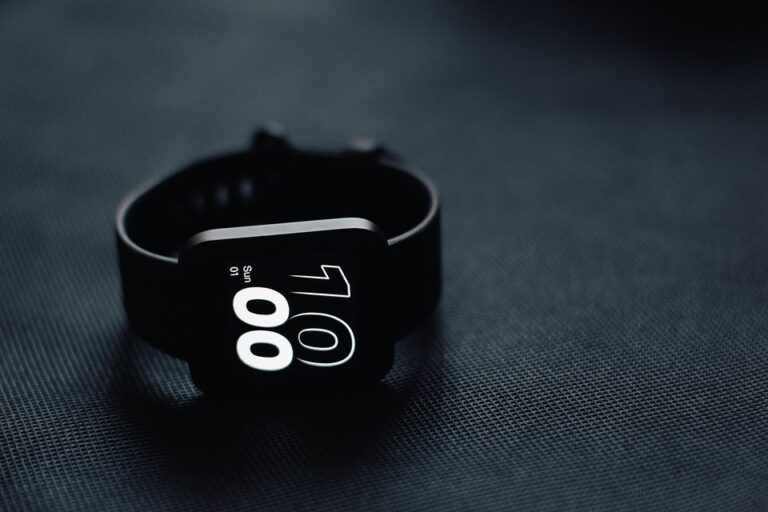Empowering Progress: How Wearable Technology is Transforming Health and Lifestyle
The era of wearable technology is here, revolutionizing the way we monitor health and enhance lifestyle. With devices ranging from smartwatches to fitness trackers, wearable technology has transformed not just personal health management, but also fitness, sleep quality, and overall well-being. This article delves into how wearable technology is catalyzing positive change, empowering users with data, and inspiring healthier lifestyles.
The Surge of Wearable Technology
Recent statistics reveal that the global wearable technology market is projected to reach $60 billion by 2023, showcasing a growing trend among consumers who are increasingly prioritizing health. The demand stems from an interest in personalized healthcare and lifestyle management, suggesting that more individuals are poised to embrace technological solutions to better their health.
What is Wearable Technology?
Wearable technology refers to electronic devices that are worn on the body, often capable of tracking various health metrics such as heart rate, physical activity, sleep patterns, and even blood oxygen levels. Unlike traditional health monitoring tools, wearable devices offer real-time insights, allowing users to make informed decisions regarding their health and lifestyle.
Key Benefits of Wearable Technology
Wearable technology is multi-faceted, with benefits spanning across several dimensions:
1. Health Monitoring
One of the core advantages of wearable devices is health monitoring. For instance, devices like the Apple Watch and Fitbit not only track steps but also monitor heart rates and warn users of irregularities. The data collected by these gadgets has proven invaluable in early detection of medical conditions, empowering users to seek timely medical intervention.
2. Enhanced Fitness Goals
Wearable fitness trackers help individuals set and achieve fitness goals with ease. Features like activity reminders and goal tracking provide motivation, encouraging users to maintain a consistent exercise routine. According to a study published in the Journal of Medical Internet Research, participants using wearable devices were 30% more likely to meet their exercise goals compared to those without tracking tools.
3. Sleep Improvement
Quality sleep is crucial for overall health. Wearables equipped with sleep tracking features analyze sleep patterns, duration, and quality, helping users identify factors that negatively impact restful nights. Armed with this information, users can implement changes to improve their sleep hygiene, leading to better overall health.
4. Convenient Health Data Management
Wearable technology allows seamless data management. Users can store health data in one place, making it easier to share with healthcare providers. This transparency fosters a collaborative approach to health management, enabling doctors to provide personalized care based on accurate data analysis.
Real-World Impact: A Success Story
Consider the example of a 45-year-old man named John, who struggled with obesity and related health issues for years. After receiving a fitness tracker as a gift, John began tracking his physical activity and caloric intake. The device provided him with insights that motivated him to adopt healthier eating habits and increase his daily activity. Over six months, he lost 30 pounds and improved his overall health. His story is a testament to the empowering potential of wearable technology.
Challenges and the Future of Wearable Technology
Despite the many benefits, there are challenges to the widespread adoption of wearable technology. Privacy concerns over data security and the accuracy of health information are notable issues. As wearable devices become more pervasive, manufacturers must prioritize user data protection and ensure the reliability of health metrics to build trust.
Looking ahead, the future of wearable technology is promising. With advancements in technology, we can expect smarter devices that offer even more enhanced functionalities, such as advanced bio-monitoring and integration with telemedicine platforms.
Concluding Thoughts: The Path Ahead
Wearable technology is not just a trend; it represents a significant shift towards proactive health management and lifestyle enhancement. By providing users with critical health insights and motivating lifestyle changes, these devices are empowering individuals to take control of their well-being. As the industry continues to innovate, the potential for wearable technology in health and lifestyle remains vast.
Internal Links
External Links
Images:
- Image of a fitness tracker with heart rate monitoring features (Alt Text: "Wearable Technology Monitoring Heart Rate")
- Image depicting a person running with a smartwatch (Alt Text: "Wearable Technology in Fitness and Lifestyle")
Adopting wearable technology can equip individuals with the tools they need to enhance their health and lifestyle. Explore the possibilities and empower your progress today!


